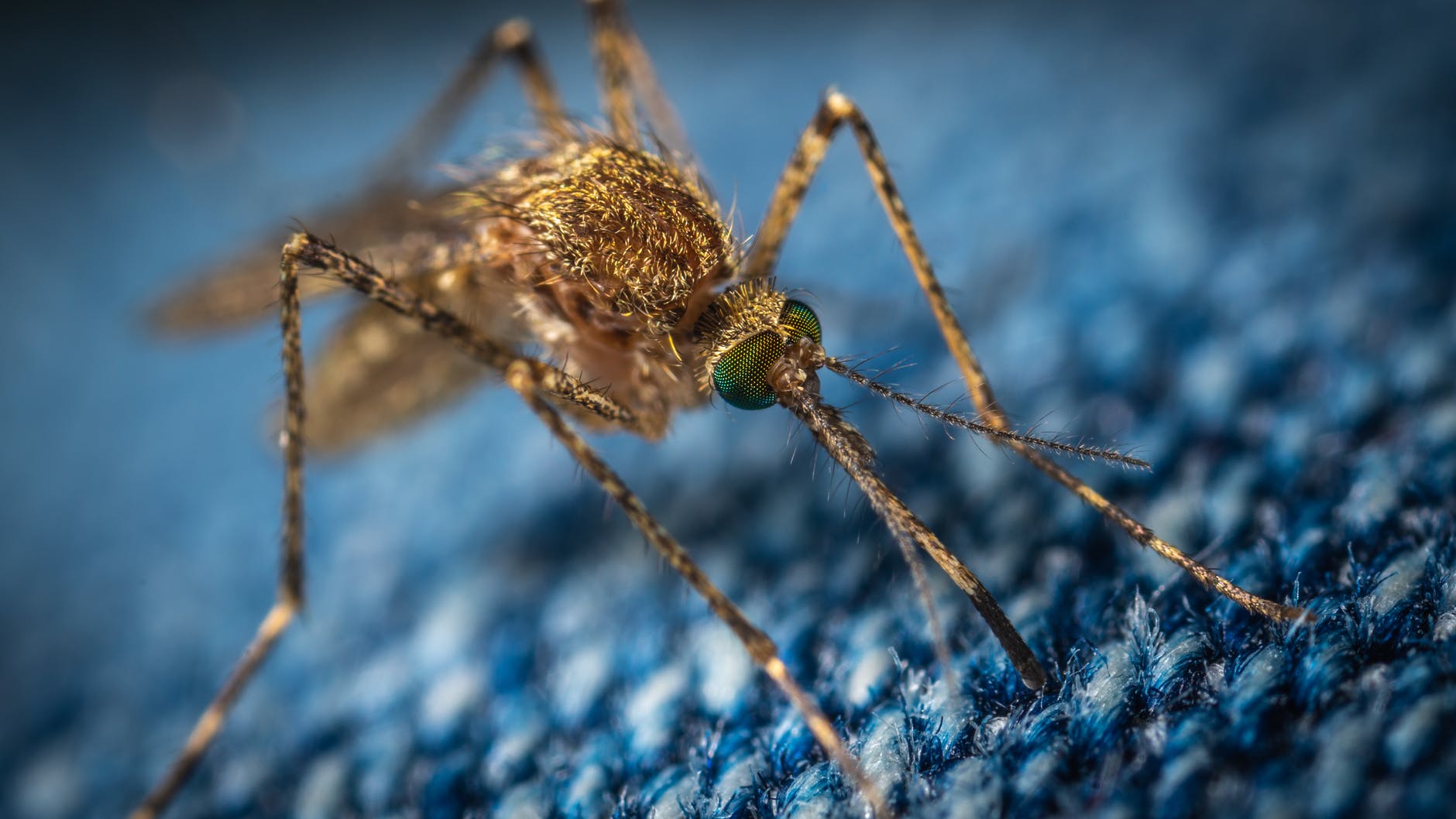Wáaj máax a ts'o'ok deseado alguna ka'aten jump'éel ki'imak K'iin Mundial ti' le Mosquitos?
Mix xan teen. Ba'ale' le súutuko' le bejla'e'. Amal ja'aba', marcamos le k'iin Mundial ti' le Mosquitos ti' agosto 20. Establecido ti' 1897, le propósito jach crear yóolo'ob yóok'ol le conexión ichil le mosquitos yéetel le malaria descubierto tumen yáax ka'aten tumen le investigador británico Sir Ronald Ross te' najil xooko' ts'aak Tropical u Liverpool.
 Le acrónimo k'iin je'el u beel WMD, except that it’s already taken by “armas u destrucción masiva.” Ba'ale' táan u páajtal u jump'éel kin tuukul útil tuukul ti' le mosquitos. Le parásitos chupadores k'i'ik'el le desarma armas ti' destrucción masiva ku propagan k'aas k'oja'anilo'obo'. Le tu'ux yo'osal le kaambalil yo'osal le Prevención u k'aas k'oja'anilo'obo' le ku “the world’s deadliest animal.”
Le acrónimo k'iin je'el u beel WMD, except that it’s already taken by “armas u destrucción masiva.” Ba'ale' táan u páajtal u jump'éel kin tuukul útil tuukul ti' le mosquitos. Le parásitos chupadores k'i'ik'el le desarma armas ti' destrucción masiva ku propagan k'aas k'oja'anilo'obo'. Le tu'ux yo'osal le kaambalil yo'osal le Prevención u k'aas k'oja'anilo'obo' le ku “the world’s deadliest animal.”
Le jump'éel úuchben flagelo, Ba'ale' le ciencia siglo XXI u páajtal u capaz u wáantik k superar u amenaza, using tools similar to the ones we’ve developed to grow the best and healthiest crops the world has ever seen.
In p'eek in le mosquitos Ba'ale' in aman. I’m a imán mosquito—jump'éel nu'ukulil le asab o bey 20 por ciento le' jo'olkaajo' u investigadores le Universidad u Florida afirman le ku especialmente atractivos. Le ken in muerden, Hincho yéetel ronchas.
As much as I’d like to say that we should wipe out the global population of mosquitoes, that isn’t really the goal. Chéen jump'éel pocos ti' le 3,500 ba'alche'ob mosquitos alguna ka'atéen atacan máako'ob. U yala'ab k P'at tak junal yéetel proporciona yo'och utia'al le aves, Soots', Ranas, yéetel uláak' criaturas. They’re even pollinators that help plants reproduce.
Le k muerden, Ba'ale', Táan u béeytal u transmitir k'aas k'oja'anilo'obo' mortales. Malaria Chéen kÃinsik cientos u miles máak Amal ja'aba', especialmente tu yóok'ol kaabe' ti' ma'alo'ob. Other mosquito-borne diseases are a rogue’s gallery of horrible ailments: Chokwil amarilla, Dengue, ya'ab tipos encefalitis, ka asab.
There’s also the Zika virus, Ba'ax ku ts'o'ok extendido tumen le trópicos yéetel permanece ti' u xuulil u, USA. Le investigadores ku séen ti' defectos a sÃijil, incluyendo jump'éel terrible t'aan microcefalia, Ku resulta ti' bebés yéetel cerebros anormalmente mejen. (Ku beetik Kanp'éel ja'abo'ob, Ts'Ãibtmaj yóok'ol le amenaza le zika Waye' Ka Waye'.)
Le conclusión jach ti' le mosquitos ku responsables u nuxi' cantidad sufrimiento ch'Ãijsajil.
 Tuláakal je'el u páajtal k ch'aik ba'axo'ob tu kano'ob simples utia'al u controlar le mosquitos naats' k hogares yo'osal u eliminación le criaderos. Le tácticas incluyen báats'tik contenedores abiertos yéetel vaciar le recipientes ku recogen le ja' ja'. Ooks le frisbee revés ti' a táankabo' trasero je'el u páajtal u marcar u jela'anil in.
Tuláakal je'el u páajtal k ch'aik ba'axo'ob tu kano'ob simples utia'al u controlar le mosquitos naats' k hogares yo'osal u eliminación le criaderos. Le tácticas incluyen báats'tik contenedores abiertos yéetel vaciar le recipientes ku recogen le ja' ja'. Ooks le frisbee revés ti' a táankabo' trasero je'el u páajtal u marcar u jela'anil in.
K'a'abet k aprovechar u páajtalil u ciencia, Xan.
 Tu granjas, we’ve learned how to defend our crops from pests through traditional crop-protection tools as well as the innovation of GM crop technology. Debido a le éxito, we’re growing more food than ever before and feeding a planet of Óol 8 mil millones máako'ob.
Tu granjas, we’ve learned how to defend our crops from pests through traditional crop-protection tools as well as the innovation of GM crop technology. Debido a le éxito, we’re growing more food than ever before and feeding a planet of Óol 8 mil millones máako'ob.
Now we’re applying this know-how to the problem of mosquito control. In wáabilo', u hecho participa ti' le investigación. Ku xook u páajtalil ku eclosionan le je'obo' mosquitos. If we’re going to eradicate some of the world’s worst infectious diseases, Yaan k entender ka desafiar le mosquitos ti' Amal p'isibij u vidas. Le ba'ala' je'el u páajtal u incluir le ma'alo'ob yik'áalil quÃmicos ba'ax ken seguros utia'al le máako'obo' Ba'ale' nocivos ti' le mosquitos.
Le túumben ciencia le edición genética je'el u páajtal u ofrecer soluciones creativas. One of the most intriguing involves the release of GMO male mosquitoes that mate with females but whose offspring don’t survive. Juntúul versión anterior ti' le enfoque tu bisaj u derrota jump'éel parásito ka ts'o'ok u salvaje u industria le wakaxo'. Le entomólogo tardÃo Edward F. Knipling, Yaan máax Anchaj tsikbe'enil u K'ajóolt ti' le mayaj tu paneles le USDA, inventó yo'osal u esterilización u redujeron drásticamente le talamilo' nook'olo'ob tornillo.
Ichil le brote Covid-19, we’re devoting enormous efforts to defeating an airborne disease that is responsible, ti' le ts'Ãib, utia'al Náats' u 800,000 muertes kaxtik. (Mosquitos don’t transmit le coronavirus.) Lela' jaatsatako'ob yiliko'ob—ka bey nojoch máako', I’m trying to protect myself and others by living a life in near lockdown.
Ba'ale' le mosquitos representan jump'éel especie pandemia permanente. Le urbanización yéetel le k'eexpajal climático páajtal páajtal asab letal, Wa ma' kin ch'aiko'on ba'axo'ob tu kano'ob.
The good news is that we’ll conquer the coronavirus. Le informes t'aano'ob sugieren ti' le vacunas estarán disponibles ti' jump'éel futuro láak'.
.A medida u máano'on le talamilo' Covid-19, let’s remember the menace of mosquitoes—ka tu'ux u creatividad cientÃfica yéetel le nu'ukulo'ob ts'aak k'a'abeto'ob utia'al u k tsa'ayal pa'atik u posibilidad jump'éel kaab xma' armas destrucción masiva.
Beetik clic waye' utia'al u beeta'al jump'éel donación ti' le páawo'ob Global u Agricultores.


